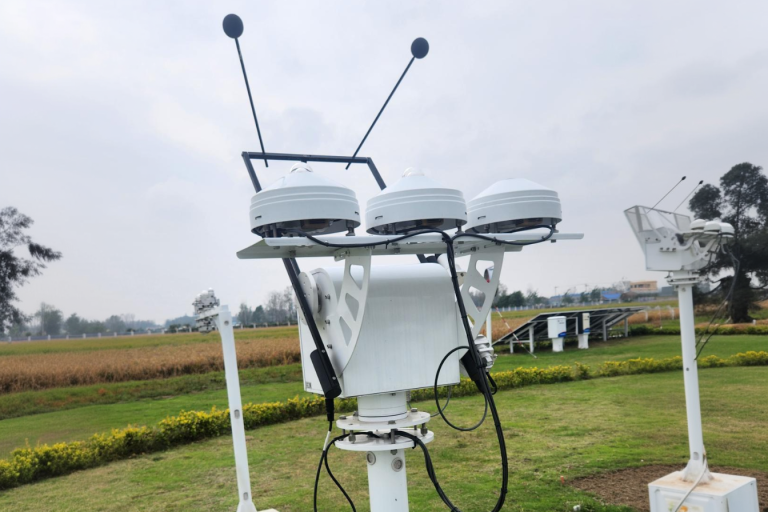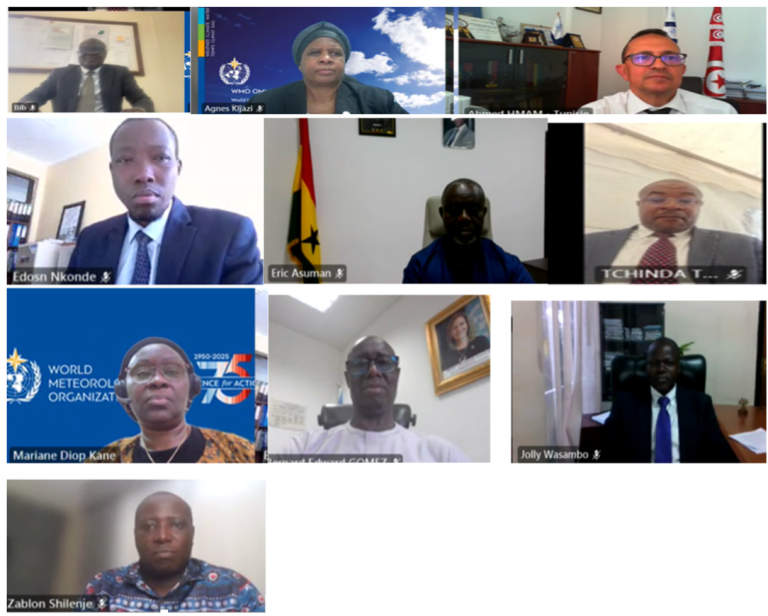AMCOMET Bureau Convenes to Strengthen Weather, Climate and Water Services in Africa
Addis Ababa, Ethiopia - The Bureau of the African Ministerial Conference on Meteorology (AMCOMET) convened its Expert Meeting virtually on 28 May 2025 to evaluate progress, reflect on strategic priorities, and reaffirm Member States’ obligation to enhance meteorological, hydrological and climate services across the African continent.

The meeting reached several critical decisions, signifying renewed political will and a collaborative drive to implement the Integrated African Strategy on Meteorology, strengthen early warning systems and support sustainable development goals.
In its oversight capacity, the Bureau expressed concern over delayed financial contributions and the need for improved resource mobilization. While recognizing the current challenges facing the AMCOMET Trust Fund, the Bureau acknowledged and appreciated the support provided by contributing Member States. It encouraged all Members to fulfil their financial commitments to ensure continued programme delivery. The Bureau also commended the African Union Commission (AUC), the AMCOMET Secretariat, the World Meteorological Organization (WMO) and EUMETSAT for their efforts in mobilizing resources and supporting the transition from Meteosat Second Generation (MSG) to Meteosat Third Generation (MTG).
The Bureau welcomed the launch of the SEWA Project under the AU–EU partnership, highlighting its potential to advance the Early Warnings for All (EW4All) initiative and the implementation of the Abidjan Declaration. It underscored the importance of involving Member States in project design, particularly in connection with the African Multi-Hazard Early Warning and Early Action System (AMHEWAS), to foster harmonized and scalable national capacities.
The successful launch of the Strategy’s Implementation and Resource Mobilization Plan (IRMP) at the Africa Pavilion during COP29 in Baku, Azerbaijan, was acknowledged. The Bureau expressed appreciation to the Government of Ghana for its offer to host the event and encouraged Members to participate actively in future COP meetings, including organizing side events to raise the visibility of National Meteorological and Hydrological Services (NMHSs) and secure greater support from partners.
To improve monitoring and reporting, the Bureau urged the AUC to develop a dedicated tool for tracking implementation and conducting biennial reviews of the Strategy. Member States were requested to submit annual progress reports and fully engage in the review process. The Bureau also called for the accelerated implementation of past AMCOMET decisions, with coordinated support from development partners.
Emphasizing capacity development, the Bureau called for increased investment in human resources, infrastructure and data systems for NMHSs. It encouraged Member States and partners to expand funding and technical assistance, enabling NMHSs to better support key sectors such as agriculture, health, infrastructure, water and energy. The Bureau also advocated for the use of climate finance mechanisms, such as the Green Climate Fund (GCF) and Global Environment Facility (GEF), and emphasized the need for national legislation that supports cost recovery and enhanced NMHS autonomy.

Despite limited staffing, the Bureau recognized the accomplishments of the AMCOMET Secretariat and appealed to Member States to provide additional personnel support, including remote deployments. It welcomed the submission of the CEWA and TACRA project proposals to the African Development Bank (AfDB) and encouraged continued resource mobilization through the AMCOMET–AfDB Fund to advance hydromet projects across the continent.
The Bureau recommended closer collaboration between AMCOMET, subregional ministerial bodies and the Committees of Directors of NMHSs to ensure consistent implementation of the Strategy. Ministers were encouraged to provide stronger oversight and integrate NMHS priorities into national development plans and budgets.
In recognition of the value of South–South cooperation, the Bureau called for an expansion of short- and medium-term human resource exchange programmes among Member States to bridge skills gaps and strengthen regional expertise.
Finally, the Bureau requested the AUC to present the IRMP to the forthcoming session of the Specialized Technical Committee (STC) and other relevant policymaking bodies for formal endorsement.
These decisions underscore Africa’s commitment to building resilient, science-based systems that improve the provision of weather, water and climate services for the benefit of its people.
For more information, contact:
Kosmos E. Akande-Alasoka
Public Information Officer
World Meteorological Organization (WMO)
Regional Office for Africa (RAF)
Addis Ababa, Ethiopia
Mobile: +251 944 363 280
Email: kakande-alasoka wmo [dot] int (kakande-alasoka[at]wmo[dot]int)
wmo [dot] int (kakande-alasoka[at]wmo[dot]int)
AMCOMET Secretariat
Email: info amcomet [dot] org (info[at]amcomet[dot]org)
amcomet [dot] org (info[at]amcomet[dot]org)
Website: www.amcomet.org
- Region:
- Region I: Africa

